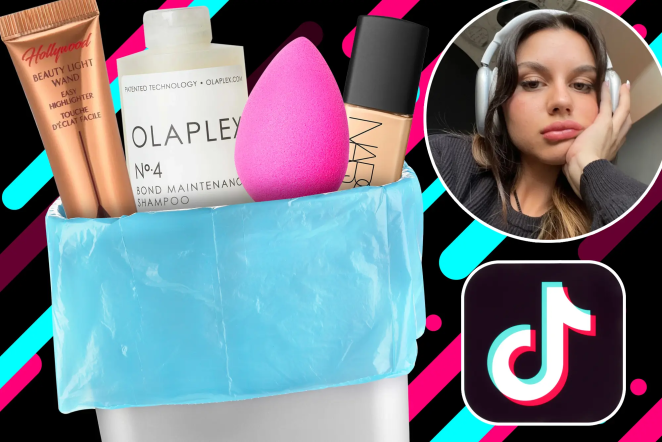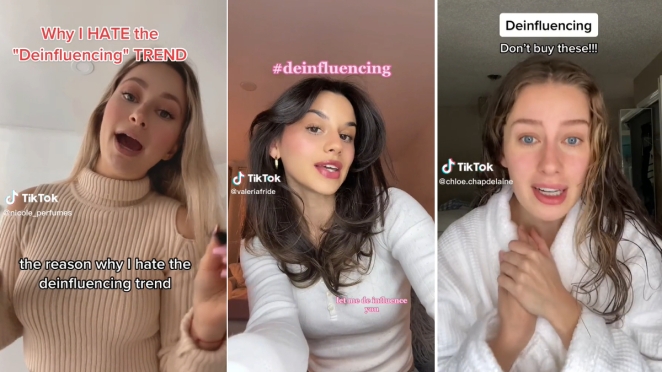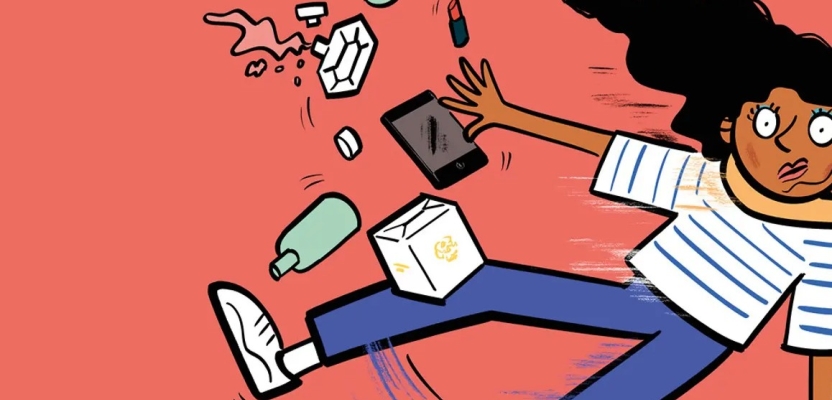It was really anyone’s guess that what started with a few young teenagers talking to their webcams in the noughties, would become a serious business in 2023, fuelled by brand and book deals, gifts, press trips, and more. Believe it or not, influencers have completely transformed the way businesses spend their marketing budgets.
Previously, they would have had to weigh up the return on investment for more traditional and expensive forms of advertising (with a high percentage of wastage). Now, they’re more likely to spend against an influencer campaign to boost brand awareness and drive commercial gain as an additional marketing tactic.
As the industry of social media creation has become more professionalised and competitive, it has equally become further advanced. Influencers have time and time again proven they have a positive impact on consumer behaviour, especially when it comes to sustainability.
75 percent of consumers in the UK, US, and Canada are more likely to take up behaviours to help save the planet after watching social media content about sustainability. Although the appetite for influencer marketing will continue to grow, we are now seeing a new type of influencer grow alongside this trend, de-influencing.

We’ve recently noticed a hunger for realism from followers that will soon start to have genuine consequences for the ways brands and influencers work together. Brands are important to influencers, of course, but if there is one relationship more important to them: their followers. It’s always been the case that influencers need to be honest with their audience to cultivate trust.
However, the shift in 2020 during the pandemic had big consequences for brand-influencer relationships. Brands realised they’d have to use online channels intelligently and strategically to ensure they could cut through the noise and influence audiences.
Now, many parts of the world find themselves in the grip of a cost-of-living crisis with the price of essentials like food and energy rapidly rising and purse strings tightening.
This means one poorly thought-out brand deal could easily spell the end or at least harm the brand. Brands have changed their marketing strategies to ensure they are using the savviest of influencers to be sensitive to the needs of their audience. Now is not the time to be pushing things their customers don’t need.
What we see as a result is the emergence of de-influencing, a trend which consists of influencers actively using their power to advise their followers on what they should not be spending their money on. This comes as the complete opposite effect to how ‘regular’ influencers attempt to convince their followers they ‘need’ certain products.

As social has become the main search engine among Gen Z and Millennials (yes you read that correctly Google), consumers take to social media to find out how they should feel about certain products, giving all the more reasons for influencers to provide their honest opinions.
In the past, they would avoid mentioning products they didn’t like, so de-influencing is a real sea change in behaviour that businesses need to be aware of.
These influencers are recognising they can provide tips and tricks relevant to the situation around them, making their following numbers grow. This trend will only become more common as people start to think critically about their shopping habits in the wake of the aforementioned cost-of-living crisis but also the environmental crisis as well.
More than half of Brits have cut back on discretionary spending – things like restaurants, new clothes, and one-off treats – in order to pay for the essentials. They are even paying attention to the influencer’s behaviour when delivering their thoughts about a product, proving to the fact that authenticity is the real driver in consumer behaviour.
There is a reason why influencers have boomed in the last decade and thanks to the kindness and honesty of strangers, these thriving communities suddenly supplied a better idea of where to eat, what to buy, and even where to go on holiday. Equally, businesses and brands have direct access to honest feedback and suggestions.
For businesses, the de-influencer trend will mean they have to implement smarter strategies on how to work with influencers and ways to sell or raise awareness of their products.

We expect brands to seek long-term partnerships with social publishers and creators to incorporate authenticity and transparency into their brand strategy. The reliance will shift to focus on micro-influencers as brands will look to engage their small but powerful followings, rather than celebrity influencers.
Influencers are going nowhere fast, but the way they behave is bound to change as shopping habits of their followers evolve.
It’s human nature to seek out second opinions when we make decisions, and this is exactly what makes influencers so powerful. In my view, the de-influencer trend will simply take this a step further by offering audiences more well-rounded, critical viewpoints.
Social media companies like TikTok are aware of this and are already investing time and money into becoming a more-trusted e-commerce platform – something the de-influencer trend will only accelerate.
None of us knew influencers would become so successful over the last decade, so with the de-influencing trend flipping the script once again, it’s vital brands and marketeers pay attention and use trusted external agencies that specialise in utilising influencers, like us at KOMI.
By Andrew Trotman, CEO and Co-Founder of KOMI Group, an award-winning social media owner, agency, licensor, and talent management service






